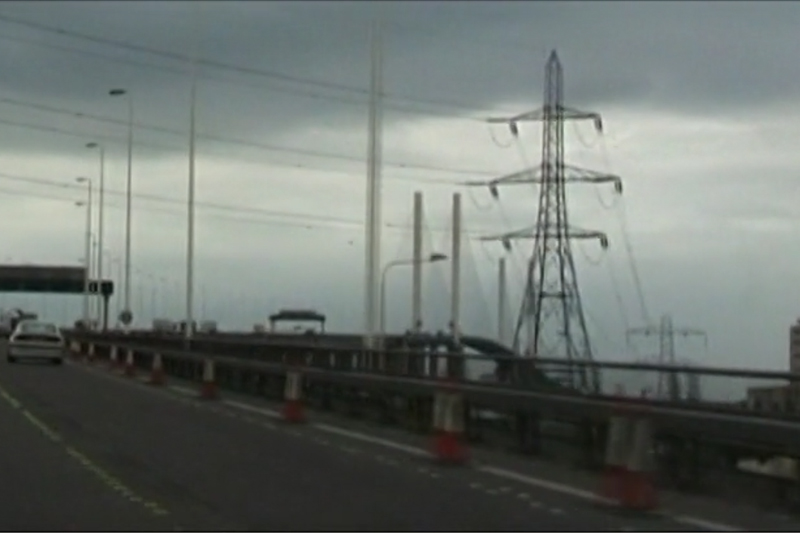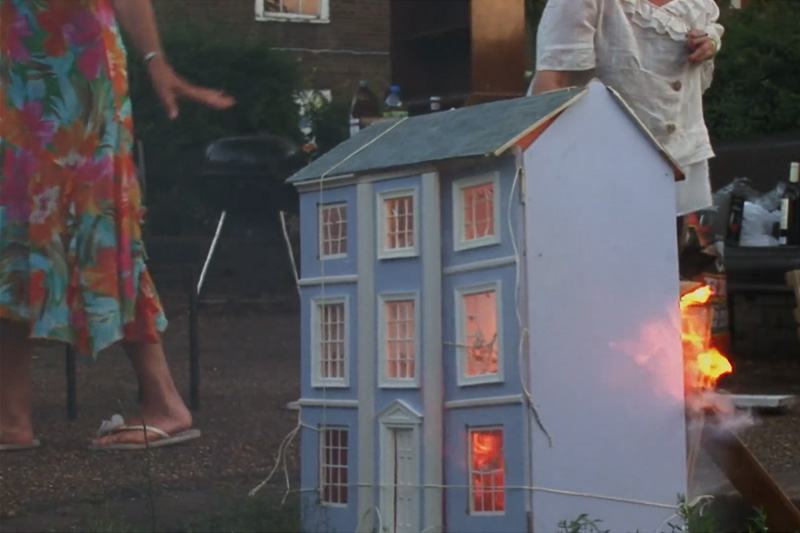
Samu Szemerey
Film: London Orbital (Christopher Petit, Iain Sinclair, 2002, 77’)
Saturday March 7 – 17:15
Ode to the world’s longest ringroad, a conversation on the edges of fiction, documentary and reflection, road movie on a highway closing onto itself and around a city – the work of Iain Sinclair and Chris Petit steps beyond genres to map London’s subconscious.
Who doesn’t ask herself while driving somewhere on the M0: what is actually this landscape, where they and everyone else just speed through? What is there in the transitional zone where the traditional notion of the city ends? The liminal metropolitan areas have always been the land of the imaginary and the unknown, experimental grounds where the mutations of the built environment freed from history show an entirely different face of their age. London Orbital is a field guide and a travelogue leading to the sources of questions and dilemmas around millennial New Labour’s booming urban development.
Sinclair’s book with the same title was published before the film, after the author spent a year walking around the M25, a 188 kilometer long ringroad around London. The book focuses on the psychoanalysis of the city, mapping its psychological geography while uncovering the hidden, often absurd, surreal or outright occult memories of the built environment. The film made with Chris Petit retraces this route, moving the perspective of observation from the walk to the highway.
“To get to the point where the city loses its mind” – the journey between mental hospitals, villas, logistical and shopping centers, swamps and residential communities layering onto each other contemplates the remains of possible futures. The city’s historic image dissolves in this fragmented landscape to give way to visions and speculations about the present and the future. This way the M25, built in the Thatcher era, is transformed from a mere industrial relic to a memorial of dissolving British social democracy, molding suburbanization, commercial and private developments and the mysterious zone around the city into a monumental vision.
How can the monotony of the bypass, the infinite boredom of driving turning into meditation be shown in cinema? The radical visual gestures of the film symultaneously map this mental state and the landscape now almost invisible beyond the highway, yet instrumental in understanding the con-temporary city.
Great cities are places one can dream about. Present and future are open where imagination can function. London Orbital investigates imagination and time, walking and driving, shopping and terrorism, film and image while stepping into the worlds of Bram Stoker, G. H. Wells, J. G. Ballard and the contemporary city.
